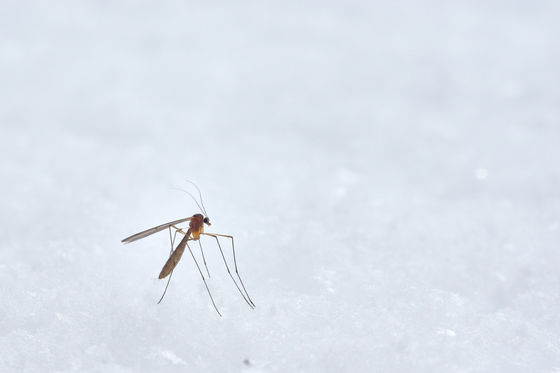Research results that components contained in mosquito saliva suppress the human immune system

Studies have shown that
The anti-immune dengue subgenomic flaviviral RNA is present in vesicles in mosquito saliva and is associated with increased infectivity | PLOS Pathogens
https://journals.plos.org/plospathogens/article?id=10.1371/journal.ppat.1011224

Mosquito Saliva Can Weaken Our Defenses Against Deadly Dengue
https://newsroom.uvahealth.com/2023/04/03/mosquito-saliva-can-weaken-our-defenses-against-deadly-dengue/
Mosquito Saliva Can Actually Suppress Our Immune System, Study Finds : ScienceAlert
https://www.sciencealert.com/mosquito-saliva-can-actually-suppress-our-immune-system-study-finds
The saliva of mosquitoes was analyzed by a research team led by Tania Striletz, a biochemist at the University of Virginia. The research team identified a chemical messenger called `` sfRNA '' contained in mosquito saliva through three different analytical methods. It has been revealed that this sfRNA has the function of suppressing the immune system that prepares the human body against infectious diseases.

sfRNA is a chemical substance that has been detected in ``insect-borne viral infections'' such as
In this study, it was revealed that sfRNA injected into extracellular vesicles interfered with the chemical transfer that occurs during viral replication in the body. In experiments using immortalized cells, the research group demonstrated that sfRNA actually increases the level of viral infection.
``It's surprising that the virus hijacks molecules of sfRNA so that co-delivery at the bite site favors the establishment of infection,'' said Strylletz. It provides a new perspective to think about how to combat dengue virus infection (dengue fever) from the first stage.'

Dengue fever is a serious infectious disease that infects approximately 400 million people worldwide every year and can be reinfected. Symptoms include fever, nausea, skin rash, and in a few cases, internal bleeding and death.
At the time of writing the article, there is no way to treat dengue fever, and there is only symptomatic treatment. Therefore, a better understanding of dengue and how it is transmitted is critical to dengue management.
With this discovery, it is expected that it will be possible to prevent the onset of dengue fever from the moment of infection with the dengue virus, but the best way to live a safe life is, as before, ``do not get bitten by mosquitoes''. That's right.

``There is no doubt that a better understanding of the basic biology of infection will ultimately lead to more effective strategies to stop it,'' said Mariano Garcia-Blanco, a virologist at the University of Virginia. can be applied to other flavivirus infections,' he said, suggesting that the results of this research may lead to the development of new measures to prevent infectious diseases.
Related Posts:







